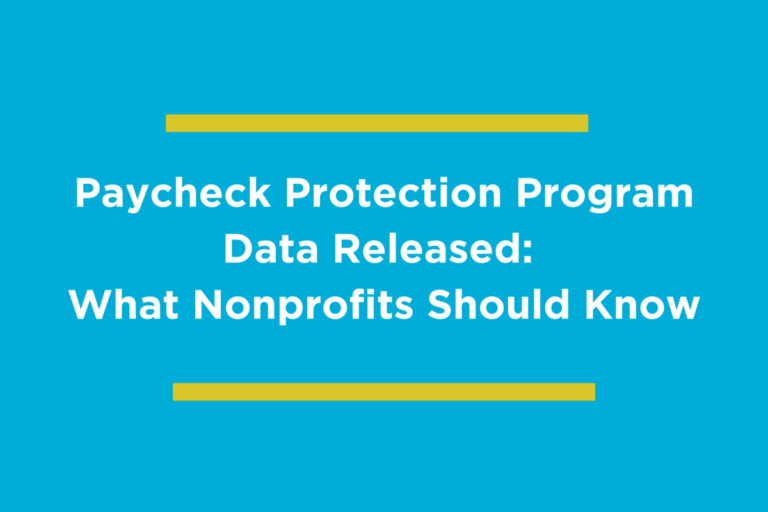Paycheck Protection Program Data Released: What Nonprofits Should Know

On July 6, 2020, the U.S. Small Business Administration (SBA) announced its release of data detailing which nonprofit organizations and other businesses received federal relief from the Paycheck Protection Program (PPP). We want our nonprofit partners to know they are on this list if they received loans greater than $150,000 so they can be prepared for the inevitable questions they might receive about why they needed the relief, and any criticisms that might come their way. PPP loan recipients of less than $150,000 are not listed by name.
As a reminder, PPP loans were only eligible to organizations that have 500 or fewer employees so not every nonprofit in the state was able to use the program. Here’s what we’ve learned so far:
- Nonprofits in Minnesota received 5,305 PPP loans; a number that represents 5% of all PPP distributed in the state;
- Minnesota nonprofits employ 11% of the jobs reported to the SBA on PPP loan applications in Minnesota; and
- Loans of $150,000 or more make up 20% of the PPP loans to nonprofits in Minnesota– the national average is 14%.
As I mentioned in my blog post from April 2, 2020, PPP loans were (and are) designed to provide a direct incentive for small businesses and nonprofits to keep their workers on the payroll. The loans were designed to help small businesses and nonprofits maintain their operations –which includes paying their staff – no matter what kind of assets or endowments they hold. That means, the immediate relief during a time of fast disruption to revenues for nonprofits made it possible for organizations to continue to pay staff while making their plans to operate during a global pandemic. Services like hunger relief aid, domestic violence prevention, and organizations supporting folks searching for affordable, stable housing, were able to continue their work with some organizations scaling up as demands increased due to living and working conditions created by Coronavirus (COVID-19).
For example, in mid-March Propel faced significant revenue disruption, applied for a PPP loan and received one. This loan allowed us to retain our full staff and turn our attention to give immediate support to nonprofits who needed to reforecast budgets, communicate with their boards, and apply for PPP loans.
We also want to shout out to the lenders who were instrumental in ensuring nonprofits were able to continue their work. Bremer topped the list, followed by support from Old National Bank and Sunrise Banks.US Bank was the leading lender for the large banks. Additionally, Propel was able to work with nonprofit lender Community Reinvestment Fund to make sure that nonprofits had access and support in preparing their applications.
If your organization got a PPP Loan, be sure to join us for a free webinar on Friday, July 17: Paycheck Protection Program Forgiveness for Nonprofits. Co-sponsored by: CliftonLarsonAllen (CLA), Minnesota Council of Nonprofits, and Propel Nonprofits.
If your organization did not apply for a PPP loan and would now like to, we encourage you to apply if you feel it would help you pay your employees. The new deadline to apply is August 8, 2020, and money can be used until the end of the year. Contact your bank or reach out to us directly if you’d like assistance with your application.
We still have many questions to dive into as more information becomes available about PPP that will provide insights into access to the program, hurdles in the application process, how nonprofits are managing the funds, and the changing rules and SBA guidance about forgiveness.
Thank you to Kari Aanestad, director of advancement at the Minnesota Council of Nonprofits, for her research and analysis of the data referenced in this post.

